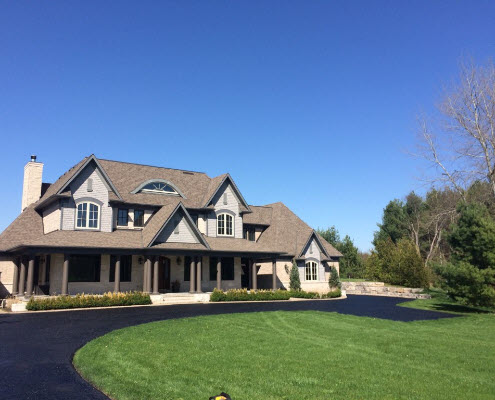
The driveway is the most prominent part of any home. It is the first thing that the people visiting your home would see. That is why it is important to keep it well maintained throughout the year.
In comparison to the other parts of your home, driveways get the maximum visibility and play a substantial role in keeping up the value of your property. In addition, it drives the highest traffic and demands frequent maintenance than the rest of the home.
Considering the facts, you need to build your driveways with robust materials that can literally withstand the tonnes of daily usage. With majorly two kinds of material (Asphalt and Interlocking) to choose from, people often get confused in regards to what material will be appropriate for them for building the driveway.
Well, here is a detailed comparison between Interlocking and Asphalt Driveways to ease up the whole scenario and help you pick the right option amongst them –
Aesthetics
When it comes to looks, nothing can beat the appeal of the interlocking driveway. The asphalt driveways look plain and boring whereas there are hundreds of different options in interlocking driveways. Every pattern of interlocking is unique and comes in an array of attractive shades, designs, and sizes.
An asphalt driveway works well for those who are fine with the basic looks, but for people who want their house to stand out from the rest of the neighborhood, the interlocking driveway is your go.
Durability
The asphalt is laid 2 inches deep and tends to lose integrity over time. It has a short timespan ranging from anywhere between 8 to 15 years. On the other hand, the interlocking materials are much sturdier and can last easily up to 20-30 years.
However, the foundation beneath these driveways have to be paid close attention otherwise the asphalt can crack and interlocking can sag easily.
Price
If you measure your options on the price scale, then you would find asphalt and interlocking on extreme ends – asphalt is far cheaper than installing an interlocking driveway. It is because asphalt paving doesn’t require much labor and materials and is far easier to install. Whereas in the interlocking process, each stone has to be laid down carefully with the help of skilled labor; leading to high costs.
However, if observed carefully, asphalt is cost-effective only in the short run. It tends to get worn out after some time and demands repair every 3-5 years. If you are looking for long run cost-effectiveness, then interlocking driveway should be on your list.
Maintenance
The asphalt driveways are made of rock, sand, asphalt cement, and a tar-like petroleum product which require high-maintenance. You have to pay enough attention to sealing the driveway every 1-5 years to prevent the frost from creating large cracks in the paving.
However, the interlock pavers don’t demand much of maintenance once they are properly paved. All you need is occasional power washing to remove the dirt accumulated in the gaps and refill them to curb the weed growth.
To summarize, both the materials have their own list of pros and cons. So, you should consider all aspects before you make your final call.


